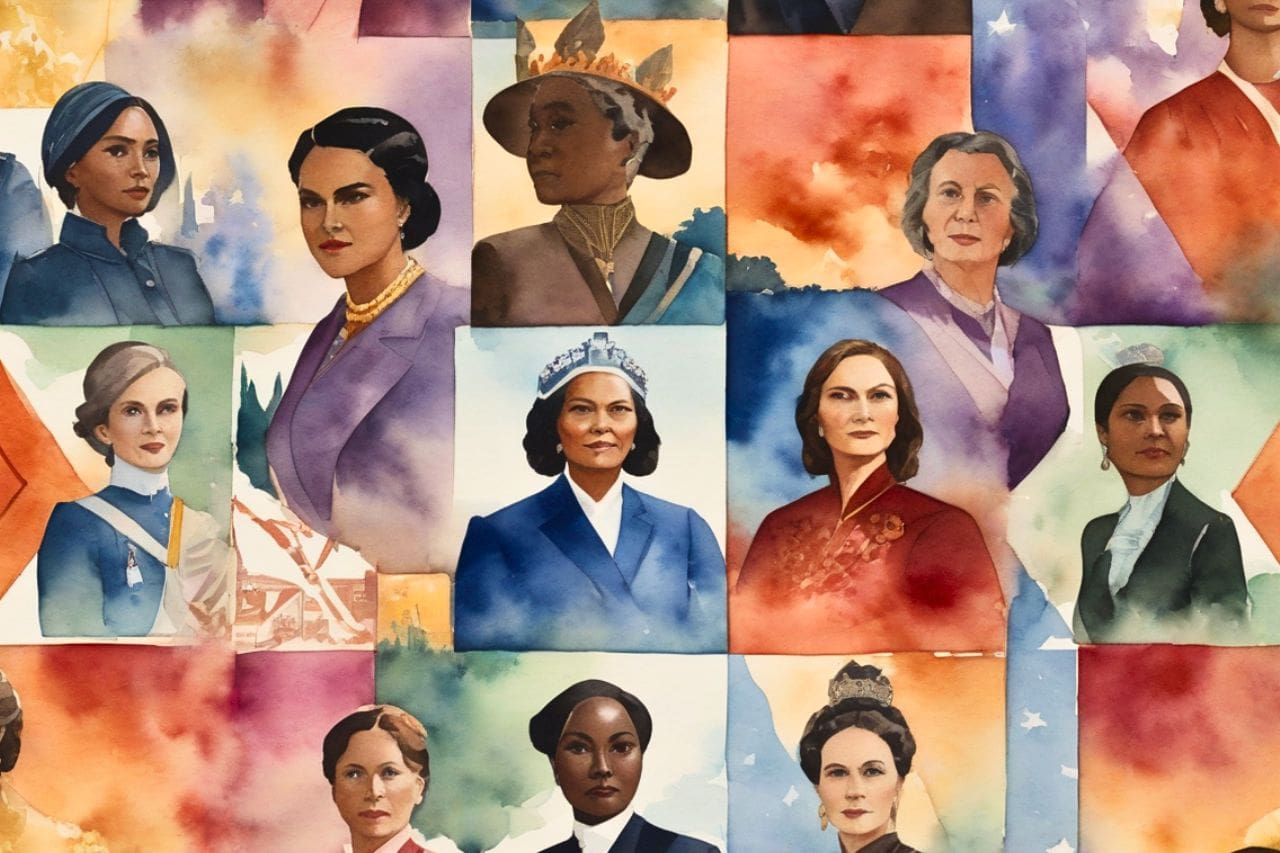

History books often focus on male leaders, but what about the female leaders in history who shaped our world? These powerful women defied societal norms, overcame immense challenges, and left an indelible mark on civilization. From ancient queens to modern politicians, let’s explore some of the most influential women who changed the course of history.
Long before women’s rights were even a concept, these trailblazing ladies wielded immense power and influence:
Cleopatra wasn’t just a pretty face – she was a political mastermind. As the last active ruler of the Ptolemaic Kingdom of Egypt, she:
Her reign marked the end of the Hellenistic period and the beginning of the Roman era in the eastern Mediterranean.
Wu Zetian broke all the rules when she became China’s only female emperor. During her reign, she:
Her leadership ushered in a golden age for China, despite facing constant opposition from conservative Confucian officials.
This Celtic queen led a massive uprising against Roman rule in Britain. Although ultimately unsuccessful, Boudicca’s rebellion:
Her story continues to inspire those fighting against oppression today.
As Europe emerged from the Dark Ages, these female rulers left their mark on history:
One of the wealthiest and most powerful women in Western Europe, Eleanor was:
Her court at Poitiers became a center of culture and learning, influencing European arts for generations.
Together with her husband Ferdinand II of Aragon, Isabella:
Her reign marked the beginning of Spain’s Golden Age and its emergence as a global superpower.
The “Virgin Queen” ushered in a golden age for England. During her reign, she:
Elizabeth’s rule set the stage for England’s eventual dominance as a global empire.
As we move into more recent times, these women shaped the political landscape of their nations and the world:
This German princess became one of Russia’s most successful rulers. Catherine:
Her reign is often considered the Golden Age of the Russian Empire.
Victoria’s 63-year reign defined an era. During her time on the throne, she:
The Victorian Era saw Britain become the world’s most powerful nation.
As India’s first and only female Prime Minister, Gandhi:
Her assassination in 1984 marked the end of a tumultuous but significant era in Indian politics.
In recent decades, women have increasingly taken on leadership roles in politics. Here are a few standout examples:
Known as the “Iron Lady,” Thatcher was Britain’s first female Prime Minister. She:
Her policies, known as Thatcherism, continue to influence British politics today.
As Germany’s first female Chancellor, Merkel:
Her pragmatic leadership style earned her the nickname “Mutti” (Mommy) among Germans.
As New Zealand’s Prime Minister, Ardern has:
At 37, she became the world’s youngest female head of government.
These female leaders in history have shown that women can be just as capable, if not more so, than their male counterparts in positions of power. Their stories serve as inspiration for future generations of women aspiring to leadership roles.
As we continue to strive for gender equality in politics and other fields, it’s important to remember and celebrate these pioneering women who paved the way. Their achievements remind us that gender should never be a barrier to leadership and that diversity in leadership often leads to better outcomes for all.
It’s difficult to pinpoint the first female leader in history, as records from ancient times are often incomplete. However, one of the earliest known female rulers was Kubaba, who ruled the ancient Sumerian city-state of Kish around 2500 BCE.
As of 2023, over 70 countries have had a woman as head of state or government at some point in their history. However, at any given time, the number of countries with female leaders is much smaller.
Angela Merkel served as Chancellor of Germany for 16 years (2005-2021), making her the longest-serving female leader in modern history.
Yes, several female leaders have won Nobel Peace Prizes, including Aung San Suu Kyi of Myanmar, Ellen Johnson Sirleaf of Liberia, and Malala Yousafzai of Pakistan.
The number of female leaders has generally increased over time, particularly in the latter half of the 20th century and the 21st century. However, women are still underrepresented in top leadership positions globally.
Read more articles like this:

Monday - Thursday 7 AM - 5 PM PST
admin@selfstalker.com support@selfstalker.com